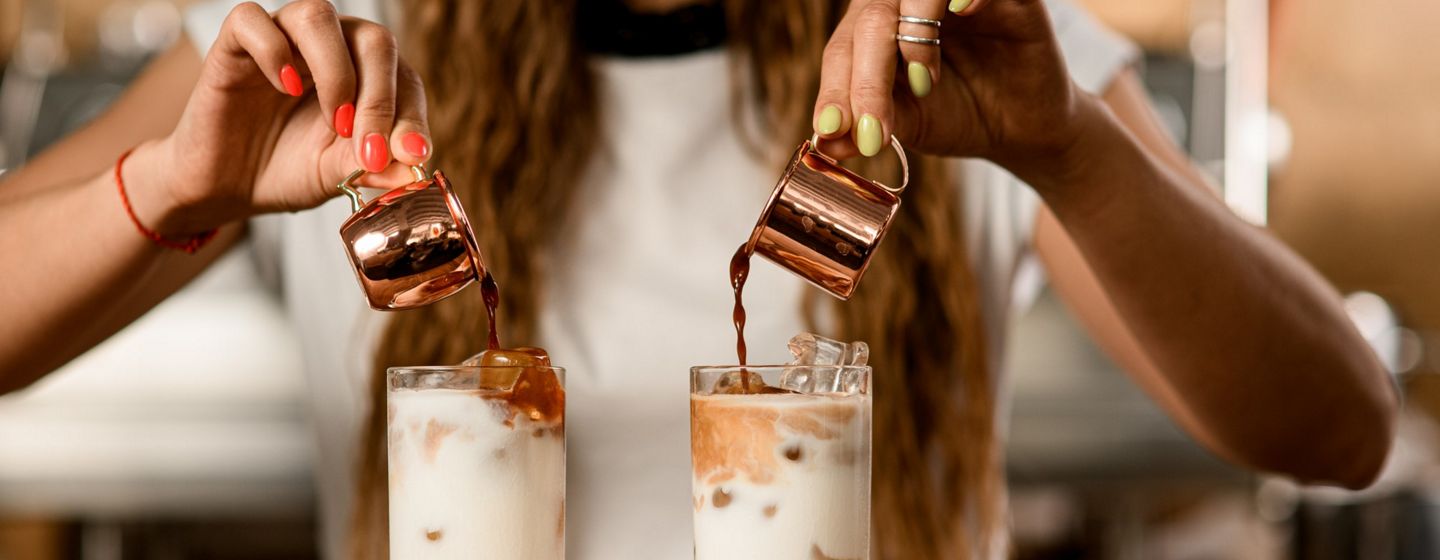Did you know that the compounding of syrups tends to be the most effective method of capturing and preserving seasonal produce to feature in a cocktail? Keep reading to learn about fundamental syrups and best practices for making and using them.
Simple Syrup | Quintessential cocktail ingredient used to boost flavor and curb bitterness
Simple syrup is typically seen in two different varieties – 1:1 (regular simple) and 2:1 (rich simple). This means 1 part sugar to 1 part water for regular, and 2 parts sugar to 1 part water for rich simple. Many mixologists gravitate toward regular simple as it pours better, mixes quicker, and is more tolerant of bad jiggering than rich simple.
To dissolve sugar into water, gently heat the two together and stir until clear, being mindful not to let the syrup actually boil as this will evaporate some of the water. After cooling, you’ll have a syrup with perfectly neutral flavor to sweeten and balance your cocktails.
Other Sugar Syrups | Sweetness comes in many forms and alternative sugars are often used in cocktails
To create even richer syrups with hints of caramel and molasses, one can use turbinado or demerara sugar, two common names for what is essentially unprocessed sugar. These are historically made by pressing sugarcane to extract the juice and retain some natural molasses, often referred to as “sugar in the raw.”
Bees provide another tasty alternative to sweeten our cocktails! Although honey is technically already in syrup form, it's so thick that it needs to be cut with water to achieve a mixable consistency. Agave nectar is made from the agave plant and therefore can boost the natural agave flavor in cocktails with tequila or mezcal. Agave nectar is about one and a half times sweeter than white sugar (so less is more), but thinner than honey so its natural syrup form will mix easily.
Similarly, maple syrup can be used for its rich, natural flavor by replacing .75oz simple syrup for .5oz maple syrup. Alternatively, when weighed properly, these sugars can be made into syrups with the same sugar content as a 1:1 simple to deliver a consistent dose of sweetness.
Flavored or "Compound" Syrups | Retain the natural flavors of fruits, vegetables, herbs, nuts, and spices in cocktails through syrup infusion
Sugar acts as a preservative and blending it with fresh fruit creates a sustainable syrup for consistently pumping those flavors into cocktails. For example, blend a quart of fresh raspberries with an equal portion of rich simple syrup, then pass through a fine strainer or sieve to create a super-fresh raspberry syrup for your next Clover Club!
Vegetables like cucumbers, carrots, or ginger can be run through a masticating juicer, strained, and blended with and equal portion of sugar to incorporate these flavors into cocktails. Fresh herbs can also be easily integrated into a syrup by blanching first (to prevent browning), then blending with simple syrup and straining. Alternatively, cold steeping fresh herbs in simple syrup overnight can achieve similar results.
Baking spices such as cinnamon, allspice, and clove can be easily infused into a syrup when added during the initial heating process and strained once cool.
When experimenting with building cocktails around a particular homemade syrup, it tends to be a good idea to begin with a fairly neutral canvas. From fragrant flowers reawaking in spring to the warm return of summer sunshine, you’ll soon be able to recreate these quintessential feelings in your seasonal cocktail menu!


